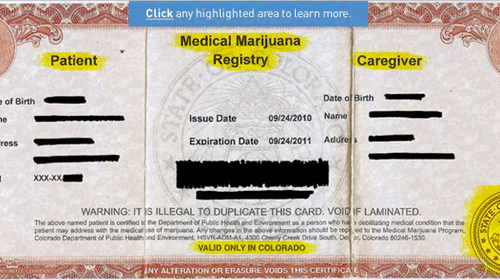
In 2000, Colorado voters approved an amendment to their state constitution that allows patients suffering from conditions like cancer, glaucoma and HIV/AIDS to use medical marijuana when a doctor has advised them to do so. The amendment to the Colorado constitution provides that these patients “may engage in the medical use of marijuana” and that they will have an affirmative defense against state criminal charges relating to their use of medical marijuana.
Nonetheless, the Colorado Court of Appeals held recently that patients with debilitating medical conditions cannot use the medicine they need if they are on probation. The rule applies no matter how sick a patient is or what type of offense led to the sentence of probation. For example, the decision will prevent a cancer patient from using marijuana as medicine if she is on probation for forging a check. Punishing probationers by uniformly denying them access to the medicine they need is irrational as a matter of policy and undermines the goal of Colorado’s medical marijuana law to provide relief for Coloradans with debilitating health problems.
Colorado law permits trial courts to sentence certain people to probation when it serves the “ends of justice and the best interest of the public, as well as the defendant.” How does denying sick people medicine serve the ends of justice, let alone the people with serious ailments who also happen to be on probation? It doesn’t. Prohibiting medicine in the form of marijuana — which for some patients is unmatched in the relief it provides from pain, nausea and other symptoms — is no more humane or rational than barring probationers from antiretroviral treatment for HIV or aspirin therapy for heart disease.
The court’s ruling is wrong legally and morally, not to mention overbroad and inconsistent with the plain language of the Colorado probation statute. Moreover, the ruling jeopardizes seriously ill patients’ access to medicine recommended by their doctors and used in compliance with Colorado law. Punishing sick people by denying them medicine that eases the nausea from chemotherapy or lowers intraocular pressure caused by glaucoma serves neither a punitive nor a rehabilitative purpose.
Because the Court of Appeals’ ruling is so flawed, yesterday the ACLU asked the Colorado Supreme Court to review the decision. No one should be denied access to medicine that their doctor has advised them to use and that state law permits — whether marijuana or Advil. We hope the Colorado Supreme Court will hear the case, and restore trial courts’ ability to allow probationer-patients in Colorado to access vital medicine.
Learn more about medical marijuana: Sign up for breaking news alerts, follow us on Twitter, and like us on Facebook.


